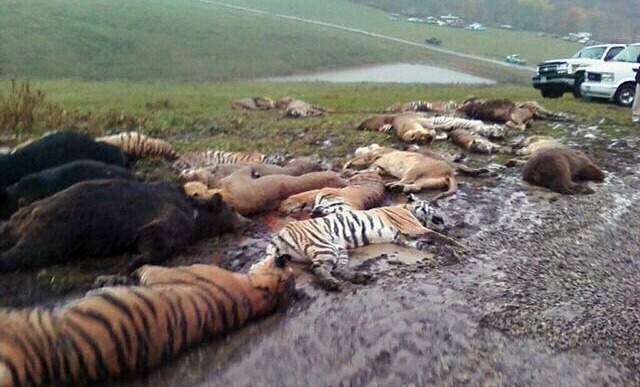Policing Tiger Breeder Services
Many people today across America are tiger owners. Some have the means and knowledge to care for them, but most do not. In many states, tiger owners get a federal exhibitor's license to avoid state and local regulations that prohibit private individuals from owning a tiger as a pet. With the USDA Class C Exhibitors license, it is often easier to buy a tiger than to adopt a dog from a local shelter.
Owners, often well-intentioned and frequently misled by the breeders, acquire a cub, and take it home. They believe that because the tiger was bottle-fed, its wild instincts have been tamed away. Within three years, the tiger is an adult, weighs 500 pounds, and is now a threat to its owner, his or her family, and neighbors. Enclosures have to be enlarged and strengthened, and the cost to properly feed and provide medical care can be upwards of $7000 a year.

At this point, if the owner is no longer willing or able to keep the tiger, there are few options. There are no shelters or adoption facilities as there are for domestic cats, and zoos won't accept them. The tiger breeder or dealer will not take it back because it is dangerous, expensive, and not profitable. A few lucky tigers end up in one of the few suitable sanctuaries. The rest end up in roadside zoos or dead.


